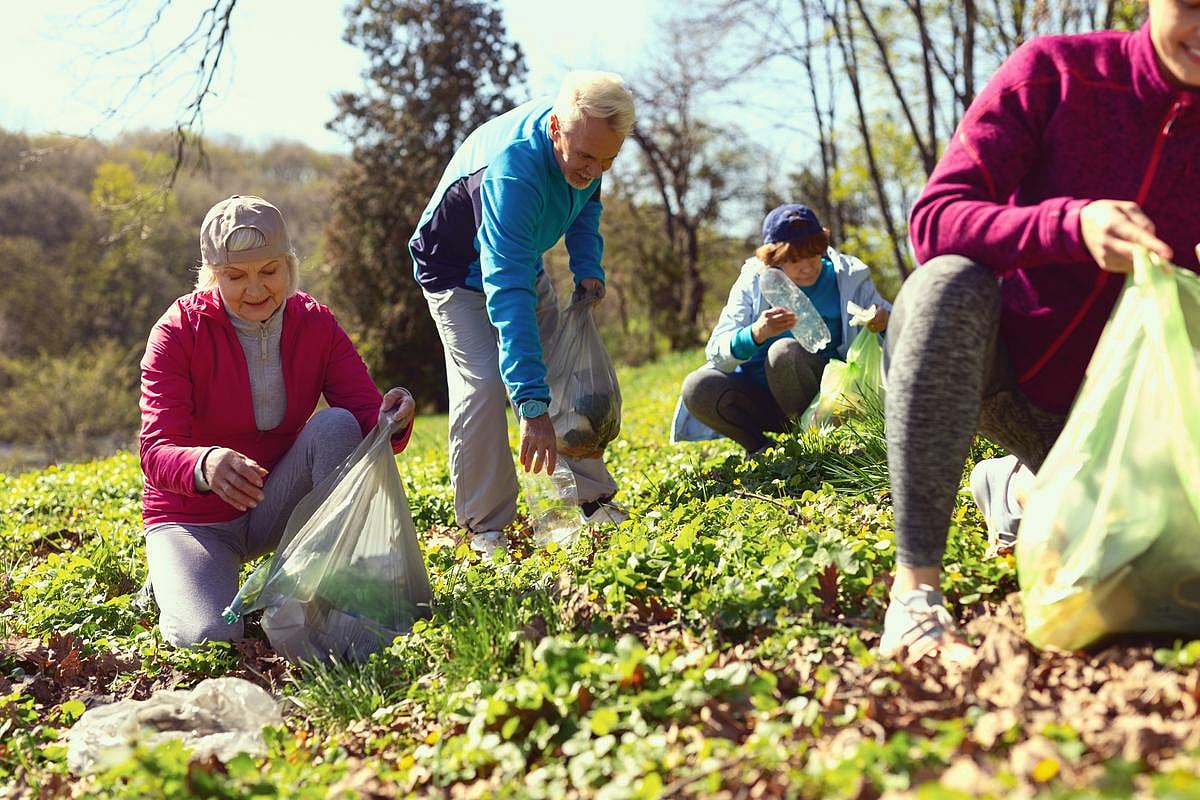Get Healthy!

- Dennis Thompson
- Posted January 10, 2025
Avoiding Isolation By Volunteering Offers Mental Health Benefits to Seniors
Delivering meals to the infirm. Tutoring a student. Patrolling a city park. Helping out at a local library.
All these activities not only serve the community, but also can help seniors avoid depression related to social isolation.
Volunteering reduces the risk of depression by 43% among seniors, researchers reported in a study published Jan. 8 in the Journal of American Geriatrics Society.
“Those engaged in volunteering activities had a significantly lower prevalence of depression,” senior researcher Dr. Guohua Li, a professor of epidemiology at Columbia University, said in a news release from the college.
Volunteerism could be particularly important for seniors who've just retired, as they are at higher risk for depression, researchers added.
For the study, researchers analyzed data gathered for nearly 3,000 seniors 65 to 79 as part of a study on aging drivers.
Overall, about 6% of all the study participants had depression, researchers found
But depression was double among those who didn’t volunteer compared to those who did, 8% versus 4%, results show.
The study also showed that money is a root of happiness for seniors.
Risk of depression was 47% lower for households with annual income of $50,000 to $79,999, and 59% lower for those making $80,000 or more, researchers found.
Depression also was more common in people 65 to 69 compared with older seniors. For example, people 70 to 74 had a 35% lower risk of depression, compared to those in their late 60s.
“The 65-69 age group often faces significant life changes such as retirement or the onset of chronic diseases, which can contribute to depressive symptoms,” Li said.
“This finding aligns with other reports indicating that ages 65 and older are often accompanied by factors such as increased physical health issues or chronic medical conditions including diabetes mellitus, anxiety, cognitive decline, and the loss of social networks -- which can exacerbate feelings of isolation and depressive symptoms,” Li added.
Serving as a volunteer should help mitigate some of this risk.
“Our study underscores the need for policies that bolster financial security for older adults, and provides further evidence for the potential protective role of volunteering in mitigating the risk of depression,” Li said.
The journal’s editor, Dr. Soo Borson, said that the new study “deserves wide attention.”
“In addition to reminding us that older people with chronic illness, prior depression, and sociodemographic disadvantage are more likely to be depressed, they find a potential protective effect of volunteering -- even in people with a history of depression,” Borson, a professor with the University of Southern California, said in a news release.
The results regarding depression among retirement-age seniors jibe with what’s already known.
“In the early days of geriatrics in the United States, retirement was recognized as a developmental stage fraught with potential risks -- loss of purpose, personal value, and meaning, all experiences that reside in the penumbra of depression,” Borson said.
The benefits found in volunteering “point us once again to the value of ‘work’ in all its forms --especially the work of serving others long beyond the last paycheck,” Borson concluded.
More information
The Mayo Clinic has more on the health benefits of volunteering.
SOURCE: Columbia University, news release, Jan. 8, 2025







